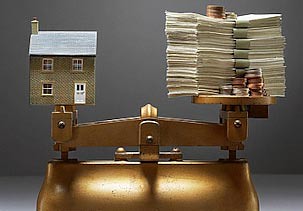Until now, the best I could do was say, "It depends." That's because the company that created the leading credit score, the FICO, has been wary about releasing specifics.
Fortunately, that just changed. At my request and for the first time, the company (also known as FICO) has released details about how specific actions, from maxing out a credit card to filing for bankruptcy, can affect people with different credit scores.
I asked the company to compute the results of those actions for two examples: a person with a 780 score, which is an excellent score on the 300-to-850 FICO scale, and someone with a 680 score. The results:
| Effect on a 680 score | Effect on a 780 score | |
|---|---|---|
| Maxed-out card | -10 to -30 | -25 to -45 |
| 30-day late payment | -60 to -80 | -90 to -110 |
| Debt settlement | -45 to -65 | -105 to -125 |
| Foreclosure | -85 to -105 | -140 to -160 |
| Bankruptcy | -130 to -150 | -220 to -240 |
| Source: FICO | ||
The results are given in a range because FICO is still a little nervous about revealing too much about its proprietary scoring. But the range is fairly tight, and we can clearly see the disparate impacts of the different actions.
By Liz WestonA guide, not a guarantee
Before we go further, I have to make this clear: Your mileage may vary.
People with the same credit score can have very different credit profiles: more or fewer accounts, a different mix of accounts, a longer or shorter credit history, use of more or less of their available credit, etc.
Because of those differences, the same action -- maxing out a card, say -- can have different effects on people with the same score, depending on the details of their individual credit profiles.
For the sake of this exercise, FICO assumed both people had several active major credit cards as well as a mortgage, a car loan and student loans.
The person with the 780 score:
- Has at least 10 credit accounts in total and a 15-year credit history.
- Uses 15% to 25% of her credit card limits.
- Has no late payments on her credit reports.
- Has no collection accounts or other major negatives.
- The person with the 680 score:
- Has six credit accounts and an eight-year credit history.
- Uses 40% to 50% of her credit card limits.
- Was 90 days late on an account two years ago.
- Was 30 days late on another account one year ago.
Here's what you need to know about each action and the effect it had:
Maxing out a credit card
Using 100% of your limit on any credit card puts you at risk of over-limit fees. It also takes a bite out of your credit score.



